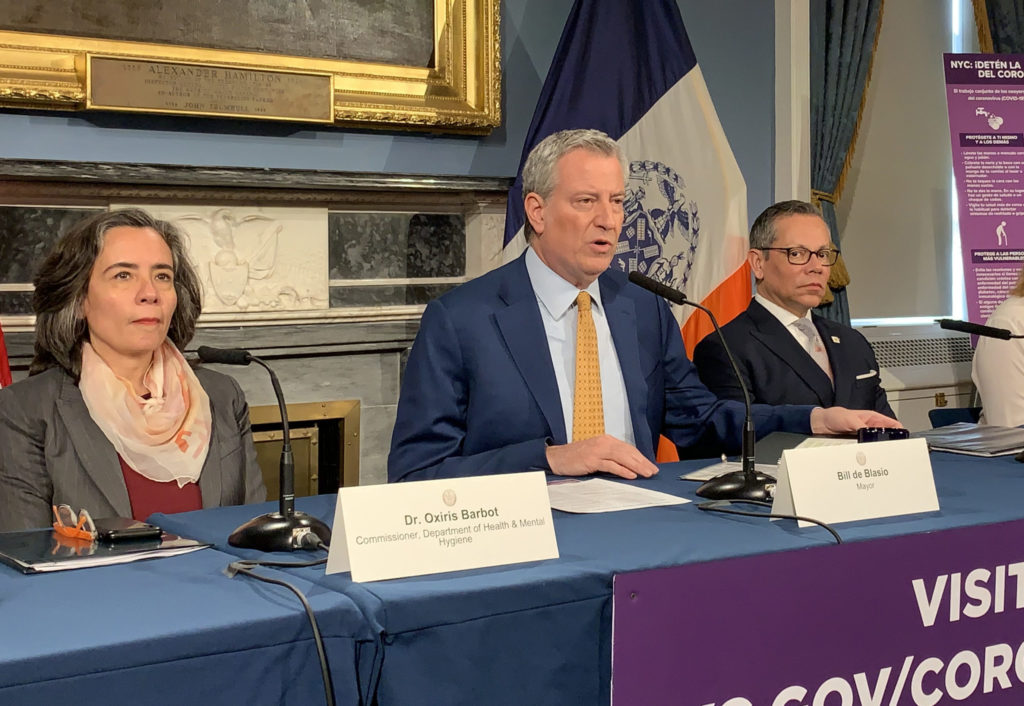Coronavirus: New York City declares state of emergency
City may take testing into its own hands if Trump administration doesn’t give approval

New York City has declared a state of emergency because of the novel coronavirus outbreak, and sweeping changes to the city’s businesses and social life will go into effect.
Most gatherings of more than 500 people have been banned, the mayor said. Restaurants and bars will be restricted to 50 percent occupancy to allow more space between people. These new regulations will go into effect Friday, March 13th at 5 p.m., with the exception of Broadway theaters where the limits have already gone into effect. The announcement came following New York State’s declaration of a state of emergency.
Large theaters, the Metropolitan Opera, Barclays Center, Madison Square Garden and other large venues are among those closing. The Brooklyn Museum said it will also be closed starting Friday. Schools, hospitals, public buildings, mass transit, grocery stores and retail stores will not be affected.

Brooklyn Boro
View MoreNew York City’s most populous borough, Brooklyn, is home to nearly 2.6 million residents. If Brooklyn were an independent city it would be the fourth largest city in the United States. While Brooklyn has become the epitome of ‘cool and hip’ in recent years, for those that were born here, raised families here and improved communities over the years, Brooklyn has never been ‘uncool’.